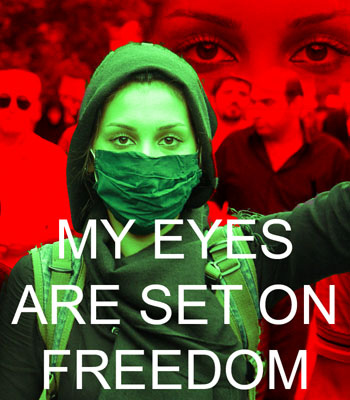SDGs should not be the icing on business-as-usual 'cake'
Shobha Shukla, CNS (Citizen News Service)
Photograph is online at: http://bit.ly/2nahfz8
The UN Economic and Social Commission for Asia and the Pacific (ESCAP) is convening the 4th session of the Asia-Pacific Forum on Sustainable Development (APFSD 2017) from 29 to 31 March 2017, in Bangkok, Thailand. The APFSD is expected to define a regional roadmap to support member States' implementation of the 2030 Agenda over the next 15 years.
The conclusions and recommendations of the APFSD will also inform the global debate at the High-level Political Forum (HLPF) on Sustainable Development, next meeting of which will be convened in New York in July 2017. The APFSD 2017 is preceded by an Asia-Pacific Civil Society Forum on Sustainable Development, currently taking place in Bangkok (26-28 March).
A SNAPSHOT: VOICES FROM THE FRONTLINES
Speaking with CNS (Citizen News Service), some civil society members shared their expectations from the governments of Asia Pacific nations engaging with APFSD 2017. While Ranja Sengupta from Third World Network (TWN) sought effective regional cooperations on SDGs, that would enable the developing countries and least developed countries (LDCs) in the region to be able to implement the SDG agenda, for Ajay Jha of Centre for Community Economics and Development Consultants Society (CECODECON) the most pressing concern was the incorporation of SDGs into the national programmes/ policies of the countries of the region. Wali Haider, Secretary of Pakistan Kisan Mazdoor Tehreek, a national alliance of small and landless farmers, wanted a ban on corporate capture of agricultural land, particularly in countries where a sizeable population depends on agriculture for their survival.
ROADMAP IS ABOUT REGIONAL COOPERATION: RANJA SENGUPTA
Ranja Sengupta added: "The regional roadmap is about regional cooperation. The most important point is to make countries work together regionally so that they are able to implement SDGs. Many free trade agreements (FTAs) are being negotiated and signed by countries, including India, without giving any thought to the roadblocks some of them might create in meeting the SDGs. All countries need to do an SDG compatibility impact assessment of the policies which they are following in the field of trade investment, technology, taxation and other financial and macro economic issues. Countries must not forget that aggressive liberalisation severely limits the scope of implementation of SDGs. We also need an intergovernmental tax body, as many LDCs are losing a lot of finance due to tax evasion by corporations. Countries of the region and civil society must together explore ways to make available the Means of Implementation to LDCs to meet the SDGs. India should play a major role in fostering cooperation in the field of technology, taxes and finances, and governance in the region."
END CORPORATE CAPTURE OF AGRICULTURE SECTOR: WALI HAIDER
Wali Haider who also leads Roots for Equity in Pakistan, stressed upon the importance of land distribution on equitable basis, without which a sustainable world may not be possible. “I would urge the national leaders and governments to focus on the core structural issues.
The top problem that needs to be addressed in countries, like Pakistan, is the land grabbing and corporate capture of food and agriculture sector. It is only through equitable land distribution, especially in agrarian economies, that a large chunk of population will benefit and get to live a decent life. Long term and sustainable solution lies in agrarian land reforms, rejection of corporate capture, and incorporation of local communities’ knowledge and wisdom to deal with climate and environmental crisis.”
“Agricultural land grabbing by corporate sector is an ongoing and ever increasing phenomenon in many countries. In Pakistan, the law facilitates corporate agriculture. It allows any MNC to lease our land, even for up to 99 years. Dubai based investors are coming and growing what are cash crops for them. One such corporation is using the land to grow fodder to feed the animals in Dubai (as there is no agricultural land in Dubai) and also to export it to other countries. This is not only depleting the area under food crops, but also impacting the climate and environment. Also as all their work is mechanised, it is depriving many labourers of their work and means of livelihood. If this kind of land grabbing continues, the food security and food sovereignty will be pushed further in a corner creating a crisis”, said Haider, who is also the focal point of farmers' constituency of Asia Pacific Regional Civil Society Engagement Mechanism (AP-RCEM).
#IntegratedDev IS KEY TO SDGS BUT NOT FOR SPECIFIC MINISTRIES: AJAY JHA
Ajay Jha felt that, “While SDGs have given an opportunity for civil society to engage more with the governments at local, regional and global levels, they are not affecting dominant sectoral policies (economical, agricultural, environmental, energy, etc). The various ministries seem to be more concerned with implementing their sectoral policies rather than SDGs, which simply become an add on for them. In that scenario SDGs could remain only as the sustainability icing on the business as usual cake.”
“For example, there is a lot of talk about renewable energy, but most of the developing countries, including India, are moving towards renewable energy in a completely traditional manner, which is divested of justice and democratic dimensions. Energy is available, but only to those who can afford it. Its access for people who are left behind is not prioritised as yet. So while electricity might be available, it is not accessible to all. In India we need around 20,000 MW of electricity to provide access to that section of population who do not have it. But, even though many more times than this is produced, a large number of people still remain in darkness. So it is about inequitable distribution of energy; about corporate and business interests in electricity - all of which is preventing governments to making it affordable to all."
SDGS SET THE MINIMUM 'FLOOR', NOT THE MAXIMUM 'CEILING'!
Added Jha: "Also while SDGs have set up a minimum floor on which to build upon, we need to rise above the floor. But countries have taken the floor as the ceiling and seem to be content if they are able to achieve what is listed in the SDGs. Of course, in the present scenario, even achieving the floor seems challenging. Without international cooperation; without enhanced efforts on technology transfer/ exchange, and on capacity building, it would be difficult to achieve the SDGs. Then again in developing countries it is difficult to fix accountability of the many Ministries involved with the implementation of SDGs. We are also worried about bifurcation of accountability to the extent that no one agency or institution can be held responsible for their non-implementation. Though the role and engagement of CSOs has been expressed in SDGs, in many countries, governments’ recognition of their role in planning, implementing, monitoring and review processes has been far too less and sporadic. Many CSOs still do not have access to the kind of information that they need to have to deliver their work under the SDGs framework. Also, in many countries around the world the space for democratic dissent is shrinking and the role of organizations/institutions having faith in a particular kind of extreme right wing political ideology is increasing. Unless there are changes in the sectoral policies, as desired by SDGs, we might not be able to integrate the economic, social and environmental dimensions of development”, said Jha.
Shobha Shukla, CNS (Citizen News Service)
(Shobha Shukla is the Managing Editor at CNS (Citizen News Service). Follow her on Twitter @Shobha1Shukla or visit www.citizen-news.org)
- Shared under Creative Commons (CC) Attribution License.
Copyright mediaforfreedom.com


